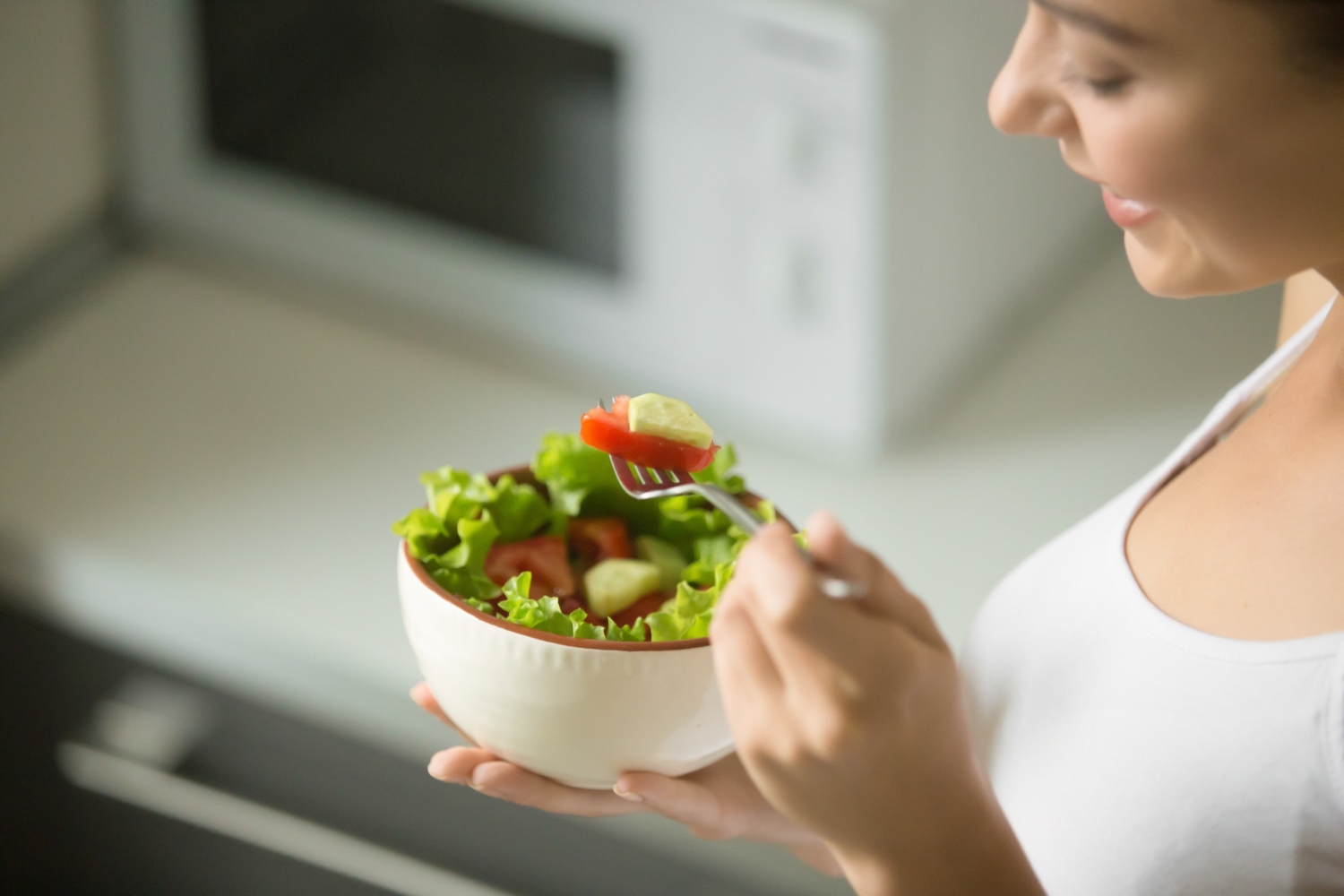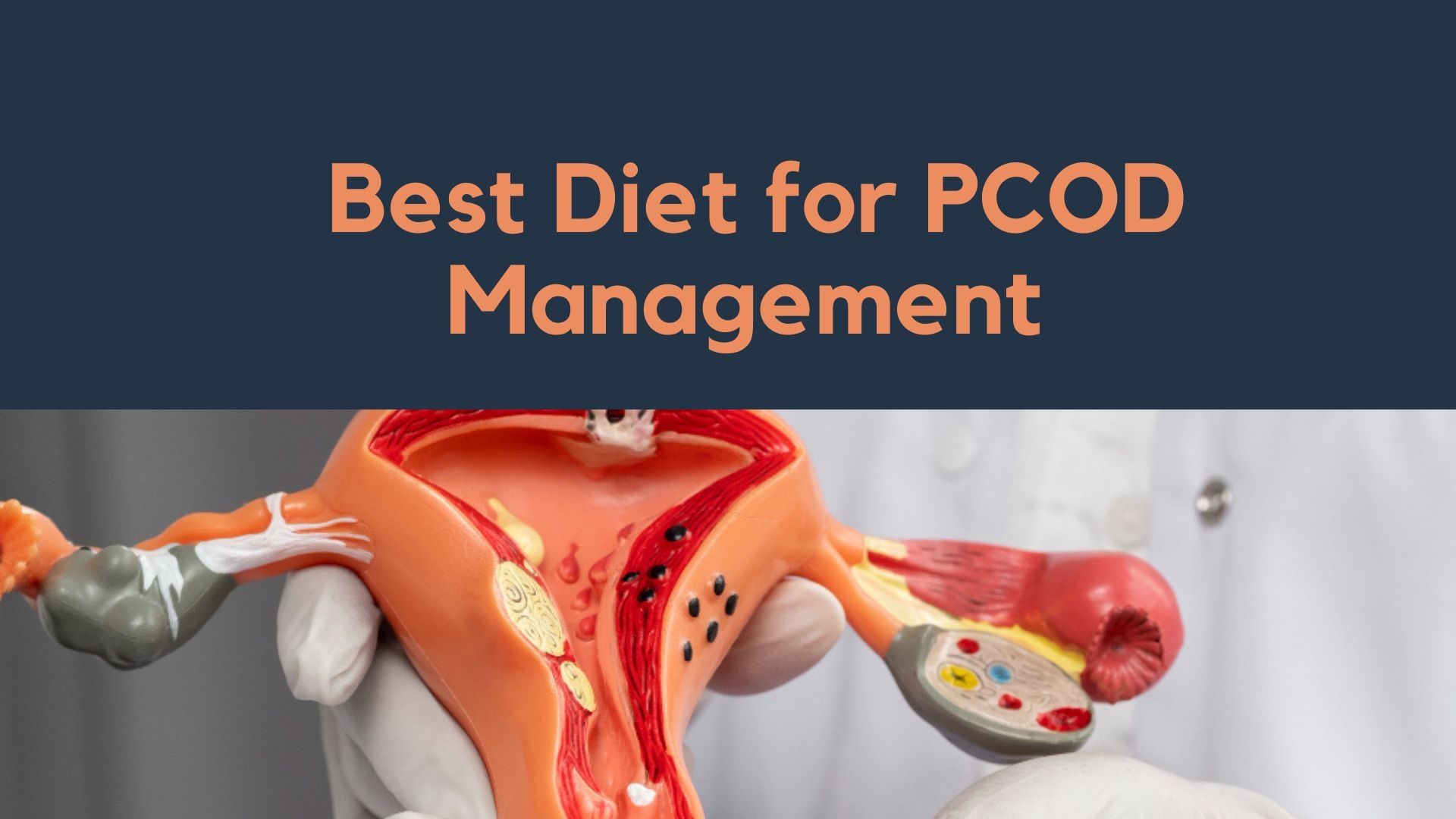A condition known as polycystic ovarian disease (PCOD) occurs when the ovaries produce a large number of eggs that are either partially mature or immature and eventually form cysts. PCOD treatment and PCOD diet centre around limiting the seriousness of side effects.
PCOD is characterised by areas of dense, darker, velvety skin, painful menstrual periods, excessive facial hair, acne breakouts, pelvic aches, and difficulty having children. PCOD may lead to type 2 diabetes, morbid obesity, obstructive sleep apnea, heart problems, mental health issues, and endometrial cancer in the future.
The condition known as polycystic ovary syndrome affects close to one-third of all women worldwide. In this blog post, we'll be discussing some of the best diets for PCOD management and when to seek emergency care. So let's get started!
What Causes PCOD?
In most cases, the ovaries produce both female and a small amount of male sex hormones (androgens). During each menstrual cycle, these aid in the proper development of the eggs in the ovaries. An imbalance in these sex hormones is connected to polycystic ovarian syndrome. Androgen production increases as a result of PCOD. Due to this, patients stop ovulating, experience acne, and develop excessive facial and body hair.
Diet for PCOD: How does PCOD relate to diet?
It is frequently reported that women with PCOD have elevated insulin levels. The pancreas produces insulin. It helps with the transformation of sugar (glucose) into energy in the body's cells.
If the patient doesn't make enough insulin, their blood sugar levels can go up. This can also happen if the patient is insulin resistant—unable to use insulin effectively. The body may try to regulate blood sugar levels by pumping a lot of insulin if the patient is insulin resistant. When insulin levels are too high, the ovaries make more androgens, like testosterone, which are produced by the body.
Insulin resistance can be a consequence of a higher-than-average body mass index. Because insulin resistance makes it hard to lose weight, PCOD women frequently face this issue. Diets low in starch and sugar can help you lose weight.
Read to know: Tips for Psoriasis Skin Care
What foods to eat during PCOD?

Research shows that what people eat has a significant effect on PCOD. There is a great deal of agreement regarding which foods should be avoided and which are beneficial and appear to assist individuals in managing their diseases.
Here are some of the best diets for PCOD management: The following is a list of three diets that may assist PCOS patients in managing their symptoms:
- A low-glycemic index (GI) diet: Because they are digested by the body more slowly, meals with a low GI don't raise insulin levels as quickly or as much as foods with a higher GI, like some carbs. Whole grains, legumes, nuts, seeds, fruits, non-starchy vegetables, and other unprocessed, low-carbohydrate foods are included in a low GI diet.
- Foods that stop inflammation: Berries, fatty salmon, leafy greens, and extra virgin olive oil all have the potential to alleviate symptoms associated with inflammation.
- DASH is a diet: Doctors frequently recommend the Dietary Approaches to Stop Hypertension (DASH) diet to lower heart disease risk or impact. Additionally, it may aid in the management of PCOS symptoms.
The following food items must be included in PCOD:
Natural and unprocessed foods; fish with high levels of Omega fatty acids like salmon, tuna, and mackerel; leafy vegetables like kale, spinach, and broccoli; dark red fruits like crimson grapes, blueberries, blackberries, and cherries; healthy fats like olive oil, avocados, and coconuts; nuts like pine nuts, walnuts, almonds, and pistachios; spices like turmeric and cinnamon; and dark chocolate in moderation. Patients with PCOD should avoid unhealthy diet. A few examples include:
- White bread, cakes, and other pastries are sources of refined carbohydrates.
- Fried food and fast food like pizza and burgers • Carbonated drinks like energy drinks and sodas contain a lot of sugar.
- Luncheon meat, cured ham and bacon, and processed meats like hot dogs, salami, and sausages
- Margarine, lard, and shortening
- Red meats like steak, pork, and hamburgers
In addition to adhering to this diet plan, the patient must keep in mind the following:
- Increase the amount of high-fibre carbohydrates in your diet gradually
- Give preference to foods high in lean protein.
- Consume foods rich in omega-3 and monounsaturated fatty acids.
- Eat a lot of fruits and vegetables with a low glycemic index.
- Drink at least 2 litres of water.
- Get your exercise in regularly.
- Don't skip meals.
- Reduce the portion size of food consumed at each meal.
Lifestyle changes that help PCOD
People who have PCOD can also benefit from lifestyle changes.
The following benefits can be achieved by combining a PCOD diet with physical activity:
- Losing weight
- Increasing insulin sensitivity
- Having more regular periods
- Lowering levels of male hormones
- Lowering cholesterol levels
Women can use behavioural strategies to help them reach their weight-loss goals and manage their PCOS symptoms. Some of the practices are as follows:
- Socially encouraging groups of people for objective setting
- Methodologies for self-observation
- Dealing with one's emotional wellness
Taking care of oneself propensities like getting sufficient rest, staying away from over-responsibility, and making the opportunity to loosen up can likewise assist with PCOD .
You may also like to read, 10 Best Foods to Boost Immunity
Conclusion
A gynaecologist should be consulted if anyone experiences these symptoms; They will feel better more quickly if they begin therapy as soon as possible. If the patient is dealing with PCOD or any of its symptoms, they may become frustrated. They may feel better and have fewer symptoms if they take preventative health measures. One of the best ways to accomplish this is to compile a list of healthy and unhealthy foods and stick to it.
There is a healthier and more beneficial alternative to nearly every food that can exacerbate the disease. For instance, if you are accustomed to white toast and margarine for breakfast, you can switch to high-fiber whole-grain bread with olive oil or avocado.
Consider getting guidance and treatment from our doctors at Ayur Bethaniya to manage PCOD and prevent the disease from worsening.
To know more, you may contact us today.
You may also like to read, Differences between PCOD and PCOS - Ayurvedic Ways to Cure it!
